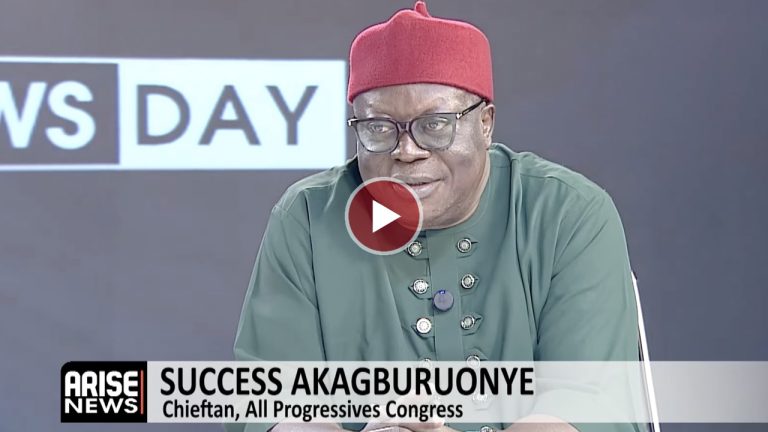

The Chief Corporate Communications Officer of Dangote Group, Anthony Chiejina, has assured Nigerians that fuel prices will remain stable despite the Federal Government’s approval of a 15 per cent import tariff on petrol and diesel.
Speaking on ARISE News on Sunday, Chiejina dismissed fears that the new tariff—approved by President Bola Tinubu—was designed to create a monopoly for the Dangote Refinery or punish Nigerians through higher pump prices.
“This 15 per cent tariff is about preventing dumping, not about high pricing,” Chiejina explained. “I can assure you that our price will remain stable between now and the end of the year. If at all it changes, it will come lower than what people expect.”
He described the widespread criticism of the policy as “misplaced populism,” arguing that the tariff was in line with global best practices to protect local industries.
“No nation advocates dumping. Dumping is not good for business—it destroys industrialisation, creates poverty, and eliminates jobs. Every responsible government must protect its industries,” he said.
Chiejina praised President Tinubu for his “tactical and focused leadership,” saying the administration had taken time to think through the policy carefully.
“President Tinubu is highly strategic. When he decides to act, it’s after due thought and analysis. He’s like a heavyweight boxer who lands precise blows that leave opponents technically knocked out,” he remarked.
Responding to concerns about stifling competition, Chiejina maintained that Dangote welcomes new investors, adding that several refinery licences have already been issued.
“Competition is good for everybody. Fifteen refinery licences have been granted to investors. The sky is wide enough for every bird to fly. The problem is that many of these people are rent seekers who prefer cheap money instead of investing. The days of easy profits are gone,” he stated.
He criticised those who claim the Dangote Refinery has captured the Nigerian state, calling them “alarmists” and “the Nicodemus of our times.”
“These people spread falsehood during the day and dine with power at night. It’s deception, and Nigerians must unmask them,” he said.
On concerns that the new tariff might worsen hardship, Chiejina argued that importers were more interested in flooding Nigeria with substandard products rather than protecting consumers.
“Many of these importers bring in low-quality fuel. Africa spends about $20 billion annually importing fuel. Apart from South Africa and Dangote Refinery, no African country has a functional refinery. We have become a dumping ground for global traders. This policy seeks to end that,” he explained.
Defending the company against allegations of punishing unionised staff, Chiejina said the redeployment of some workers within the Dangote Group was routine and not punitive.
“We are a large conglomerate with sugar, salt, fertiliser, and refinery operations. Staff transfers are normal. Even I, Anthony Chiejina, can be reassigned anywhere. It’s not punishment,” he clarified.
Chiejina also reflected on Dangote Group’s growing reputation across Africa, noting that Ethiopian President Abiy Ahmed recently invited the company to establish a $2.5 billion fertiliser plant in the country.
“When Aliko Dangote visits Ethiopia, it’s like a rock star arriving. The people welcome him because they know his investments create jobs and opportunities. It’s ironic that in his home country, some still try to demonise him,” he said.
In a final comment, Chiejina, a Knight of St. Lumumba in the Catholic Church, addressed remarks by former US President Donald Trump alleging persecution of Christians in Nigeria.
“This is an evolving issue, and it’s too early to draw conclusions,” he said. “The Catholic Bishops’ Conference has consistently spoken against insecurity affecting all Nigerians. What matters is that government must act to protect every life—Christian or otherwise.”
Chiejina reaffirmed that Dangote Refinery remains committed to stabilising Nigeria’s fuel supply, ensuring product quality, and supporting the nation’s economic self-reliance.
Boluwatife Enome



